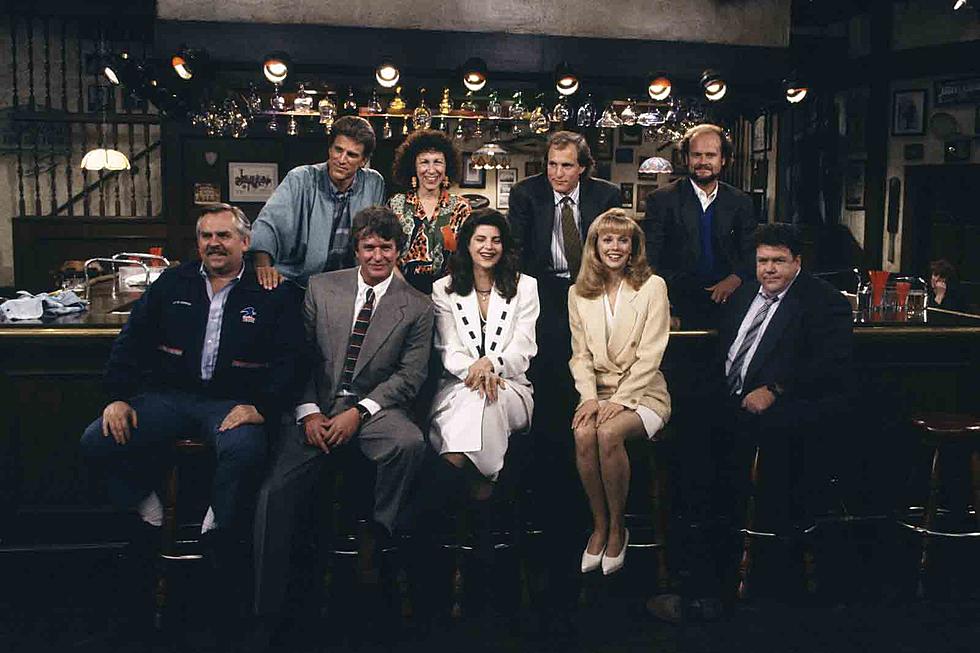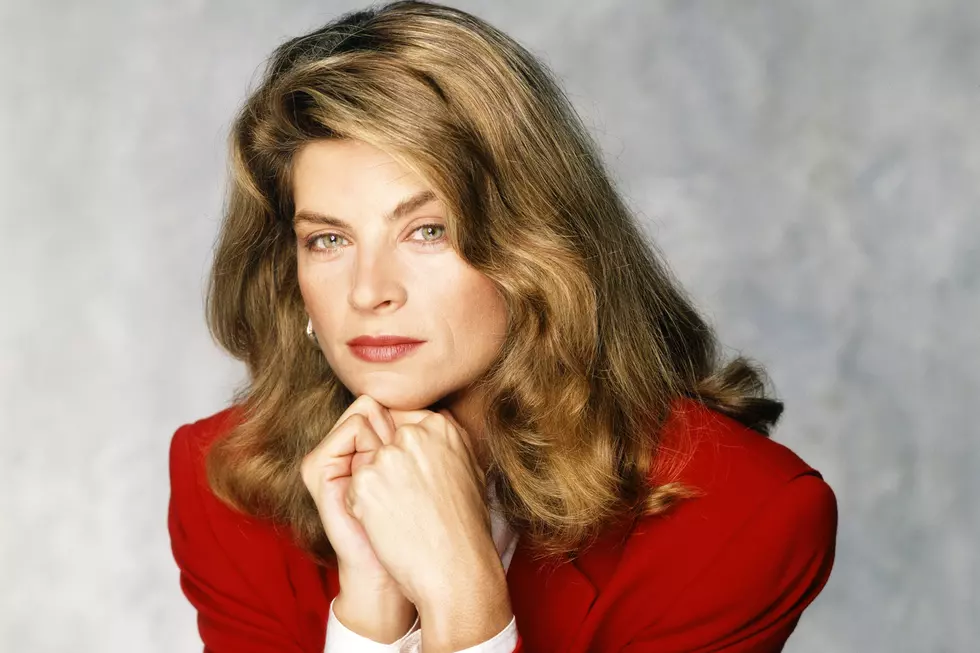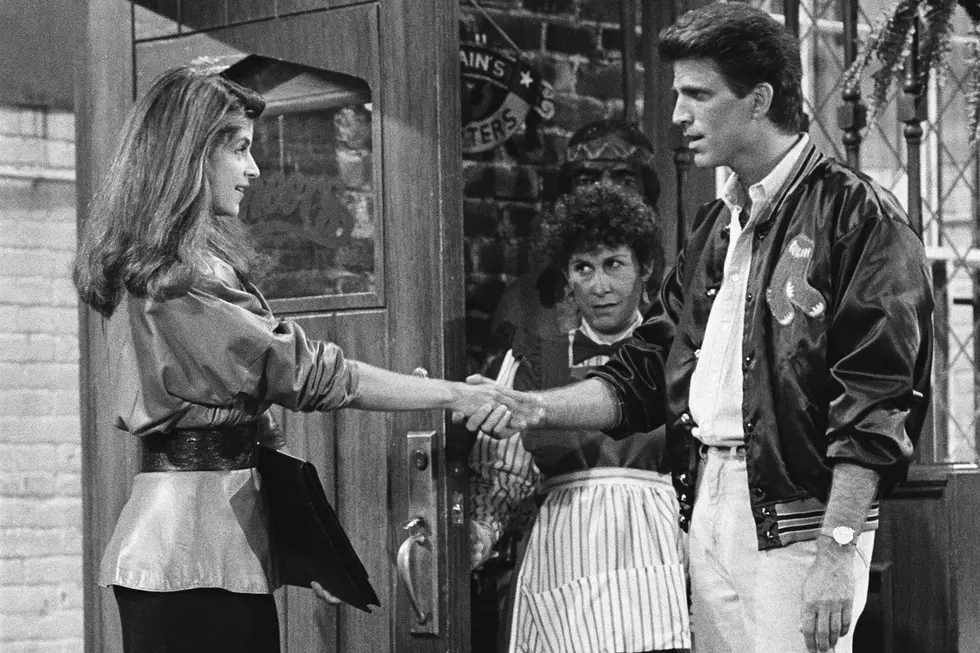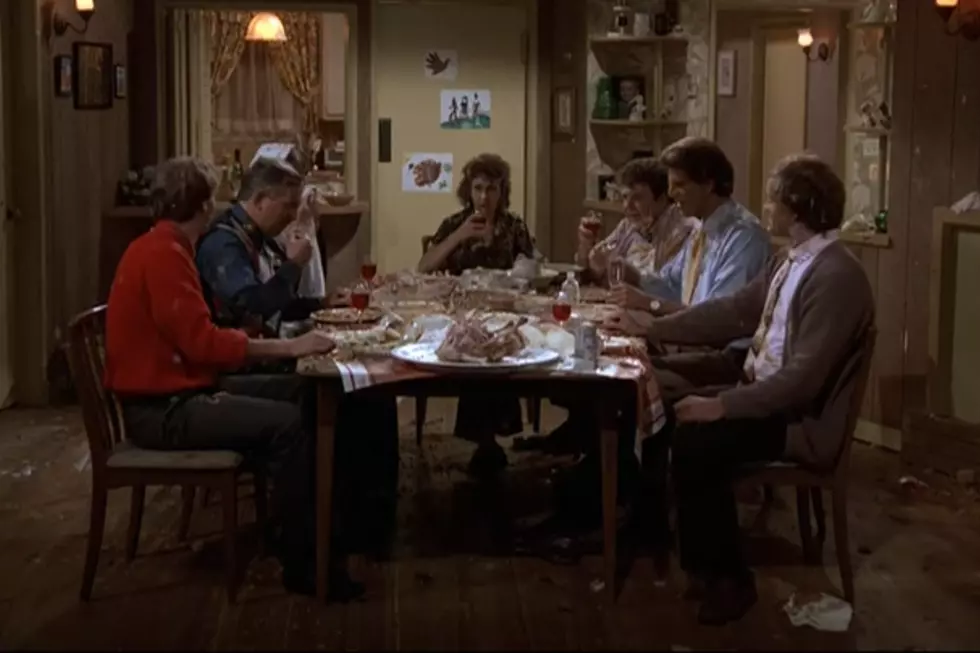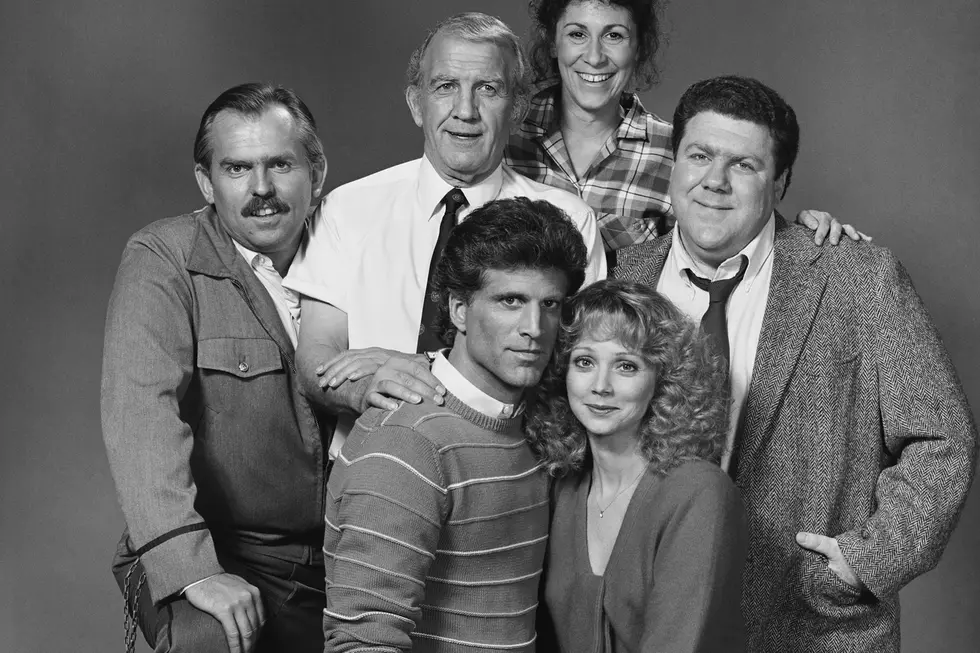
40 Years Ago: ‘Cheers’ Debuts With a Perfect Pilot Episode
Cheers premiered on Sept. 30, 1982, to little notice. NBC’s newest sitcom, created by director James Burrows and writer/producer brothers Glen and Les Charles, would go on to become one of the most successful and beloved TV comedies ever, but the ensemble series about the down but never quite out denizens of a subterranean sports bar barely made it to its second (of an eventual 11) seasons alive.
Critics loved the show about a former Boston Red Sox pitcher (Ted Danson as Sam “Mayday” Malone) running the sort of bar where its most dedicated customer is greeted by name with a boisterous ritual of welcome, and where a jilted grad student can wash up after her stuffy professor fiancee and boss jets off to Barbados with another woman. But Cheers was an unmitigated ratings flop, ending the year 74th out of 77 network shows according to the Nielsen ratings. While NBC president Brandon Tartikoff later claimed that it was always the network’s intention to renew the show, longtime Cheers writer Ken Levine, looking over NBC’s lack of success elsewhere, opined simply, “They had nothing else better to replace it with.”
Lucky for us. Cheers, from its very first episode, is a refreshingly smart, funny, effortlessly charming, character-driven and resolutely adult comedy, led by one of the best TV ensembles of all time. The premiere, “Give Me a Ring Sometime,” opens on Danson’s Malone, alone. Emerging from the bar’s back room carrying a baker’s box and minutely straightening one of the framed photos on the wall, the former baseball star still moves through his new domain with a light foot and physical grace. Danson, who’d showed off his nimbleness as dancing detective Lowenstein in the previous year’s Body Heat, is Sam Malone from that first moment, an example of fortuitously perfect casting that, like much of Cheers’ now-indelible elements, almost didn’t come to pass.
The show was initially imagined by Burrows and the Charles brothers as a sort of American answer to the British classic sitcom Fawlty Towers, and with settings as far from Boston as Kansas City and California. Eventually pared down to a single setting of a Boston sports bar, and with the anchoring premise of a Spencer Tracy and Katharine Hepburn-style romantic pairing, casting became key, with former Los Angeles Ram and future Hunter star Fred Dryer considered the frontrunner for the lead, then imagined as a former football player. While Dryer would eventually turn up on Cheers in the recurring role of Sam’s ex-jock pal and TV personality Dave Richards, it’s tough to imagine that the capable but far less engaging Dryer could have elevated Cheers like Danson immediately does. (Dryer’s more aggressively macho Dave is womanizer Sam Malone without the leavening likability or playfulness.)
For Diane Chambers, the show’s fish-very-much-out-of-water as a suddenly unemployed (not to say unemployable) eternal grad student and romantic foil, Shelley Long’s chemistry with the in-the-running Danson was so immediate that the other contenders (including Dryer, future Newhart star Julia Duffy, William Devane and Cutter’s Way actress Lisa Eichhorn) were quickly dismissed.
Watch the Opening Scene From the First Episode of 'Cheers'
For Cheers’ ever-present barfly Norm Peterson, the creators were set on Second City veteran George Wendt, while Sam’s loyal former major and minor league coach, Ernie “Coach” Pantusso, went to venerable character actor Nicholas Colasanto, easily one of the most endearing “dumb guy” sidekicks ever. Colasanto’s death from heart disease after the show’s third season would leave viewers bereft, even as it allowed future movie star Woody Harrelson a breakthrough as Coach’s equally childlike and lovable replacement, Woody Boyd. (Eventually chalked up to his all-time baseball record of getting hit in the head by pitches, Coach’s guileless cluelessness gets its first and most hilarious airing here as Coach, answering the phone, shouts, “Is there an Ernie Pantusso here?” “That’s you, Coach,” Sam reminds him from offscreen. “Speaking,” Coach continues without missing a beat.)
Finally, Rhea Perlman’s work alongside the Charles brothers on Taxi won her the role of the wisecracking single mother and oft-pregnant waitress Carlo Tortelli. Sneaking in under the wire was John Ratzenberger’s motormouthed mailman and eventual best friend to Norm, Cliff Clavin, who, after being rejected in favor of Wendt, pitched himself as the bar’s resident know-it-all. (A barely glimpsed, wheelchair-bound elderly woman originally intended as “an unpleasant, racist, wheelchair-bound old woman named Mrs. Littlefield” according to the original script, was thankfully jettisoned after shooting the pilot.)
With all the pieces in place, Cheers announces itself with breezy confidence most TV pilots lack. Introducing all the main characters (Cliff has a few lines as the then-unnamed know-it-all) in a tightly plotted, pitch-perfectly punchy and elegantly eventful 25 minutes. After Sam, in the first of the series’ signature cold opens, playfully rejects the fake ID of an underage would-be drinker (“Sorry, soldier,” he apologizes, dismissing the kid’s overaged military ID), we meet Diane on the arm of her supercilious Boston University professor lover Sumner Sloane (a peerlessly full-of-himself Michael McGuire), as the pair orders celebratory champagne on their way to Logan Airport and wedded bliss.
It’s when Sumner heads off to retrieve his heirloom wedding ring from his ex-wife that Diane is left alone in the afternoon-empty Cheers, while Sam, after amusing himself by gently mocking the couple’s pretensions, is tasked by Sloane with keeping an eye on her, something lothario Sam finds at least entertaining. Having picked up a ringing phone in the empty bar, Diane is unwillingly drawn immediately into Sam’s prolific love life, concocting a lie for the desperately pantomiming Sam while being forced to deliver the woman’s message about Sam being “a magnificent pagan beast.” There’s a deftness to the exposition all through “Give Me a Ring Sometime,” from the way Diane (and the audience) is clued in to Sam’s past to the tardy Carla’s nonstop rant about her crummy life to Diane’s eventual backstory, doled out to bartender Sam by a champagne-tipsy and bereft Diane once Sumner predictably never returns.
Burrows, Charles and Charles finally settled on the bar setting for its natural confluence of characters and events. The premiere ebbs and flows with a natural, lived-in rhythm, as we, like Diane, are dropped into a world already in progress, necessary clues as to the characters and their lives snatched from the everyday conversations of a group of people whose lives revolve around Cheers and Sam Malone. Danson was never a bartender (or athlete, alcoholic or inveterate womanizer) before being cast as the midlevel relief pitcher turned bar owner, but he’s so obviously the perfect choice here that, when Danson donned a bar towel and sympathetic ear for an episode of his other great NBC sitcom, The Good Place, the recognition ran through viewers of both shows like an electric charge.
Sam is at home in Cheers as he is nowhere else, his position as pal, employer, attentive listener and handsome minor god in a sports town like Boston lending him an ease, the episode suggests, he’s never had anywhere else. When Carla’s excuse-heavy rant ends with her peremptorily brushing past any possible reprimand for her lateness, the smiling Sam asks Coach, “Do you think I was too hard on her?” When Diane scoffs at the thought of telling her story to a mere bartender, he airily shames her by noting, “Oh, I know, I understand one’s trying to move into my neighborhood.” In what’s an ongoing bit, Sam expertly sets up Norm for some cathartic gallows humor about his downtrodden life, Sam’s “What do you know, Norm?” teeing up the beleaguered barfly’s succinct, “Not enough,” as he perches on his customary stool for the first of innumerable beers.
Long, as would be the case all through her five seasons on the show, has the harder job of being both a figure of fun and a formidable sparring partner for Sam, as well as integrating her decidedly tonier sensibilities into Cheers’ earthier milieu. (“What you reading, a book?” a curious Norm asks of the increasingly impatient and worried Diane.) Here, she’s a type (if not a stereotype) — a bookish, judgmental, self-impressed academic, whose cultural name-dropping feels less like bragging than anthropologically inadequate to dealing with those outside her circle. “That’s Donne,” she condescendingly explains to Sam concerning Sumner’s cribbed use of poetry in his proposal to her. (“I certainly hope so,” quips Sam, busying himself with the couple’s call for the best champagne in the house.) Eventually, Long would tire of Diane’s role as a foil for the rest of the gang’s pretension-puncturing jabs at her expense, leaving the mantle of the female lead to the very different but equally capable Kirstie Alley from Season Six onward. But there’s no question that the creators’ Tracy-Hepburn chemistry is ignited right from this first outing, as Sam and Diane’s obvious, opposites-attract sparks emerge from their inevitable clashes.
When Diane, confronted with the irrefutable evidence that Sumner has used their plane tickets to Barbados to whisk away his ex, hangs up the bar’s phone, her lashing out at Sam is what truly kicks off the passionate, off-and-on again relationship that would come to define Cheers’ first five seasons. Sam, as amusing as he’s found it to banter with a beautiful woman all night, gets fed up with Diane’s unwillingness to see the truth of her situation and lashes right back — before offering her a job.
Watch a Scene From the First Episode of 'Cheers'
It’s the sort of premise-setting swerve as improbable as it is inevitable and necessary, but damned if Long and Danson don’t roll right past the requisite nature of the arrangement to make Sam’s offer — and Diane’s begrudging acceptance — seem both believable and loaded with promise. Sam’s pitch, “I need a waitress. You need a job. You like the people here. You think that they like you, and the phrase ‘magnificent pagan beast’ has never left your mind,” shows how, no matter how good a pitcher Mayday was (and there’s some debate), he’s a born bartender.
For the overeducated but completely unqualified-for-anything-but-dilettantish-study Diane, she’s just lost her boyfriend and the teaching assistant job for that same faithless man. Sam, meanwhile, notes that he’s short-handed and views this fiery outsider as an entertaining and challenging combatant ... and potential conquest, Sammy being Sammy. When Diane’s first customers the next day are greeted with the loquacious Diane pulling up a chair to unnecessarily explaining why she, of all people, is waiting tables at a lowly saloon, she carefully constructs rationalizations that are similar to how Burrows and the Charles brothers chose Cheers as Cheers’ central setting.
“People meet in bars,” Diane says to the foreign-speaking couple. “They part in bars, they rejoice, they suffer. They come here to be with their own kind.” As Gary Portnoy and Judy Hart Angelo’s enduring theme song echoes the sentiment, people seek out a place where, as with the lonely and perpetually frustrated Norm, “everybody knows your name.” Sure, Sam, Coach and Carla are shown at the episode’s end all laughing it up at Diane’s resulting embarrassment (the Norse-accented couple manages to explain that their luggage has been stolen), but, as Diane would find out, being accepted at Cheers means being part of the joke.
Cheers went on to become a rating and awards season juggernaut, its 11 seasons scoring an astounding 111 Emmy nominations, and 28 wins, including awards for Danson, Long, Perlman, Alley, Harrelson and later supporting player Bebe Neuwirth. It survived not just Colasanto’s death, but Long’s departure and the challenges of sustaining its quality over more than a decade and 275 episodes. And while the show grew and changed during its run, “Give Me a Ring Sometime” remains a master class in sitcom world-building. As no less an authority than fellow NBC sitcom royalty Tina Fey noted in her 2011 book Bossypants, “If you want to see a great pilot, watch the first episode of Cheers. It's charming, funny and well constructed.” Fey goes on to call the pilot of her workplace sitcom 30 Rock “awkward” and “sweaty,” which is a bit harsh. But it does point to the way that even the most celebrated TV shows, more often than not, must go through some growing pains. For Cheers, its first episode hit the ground running, fully formed and possessed of all the elements that would make it so great for so long.
28 Classic Films That Were Turned Into (Mostly Failed) TV Shows
More From 92.9 NiN
